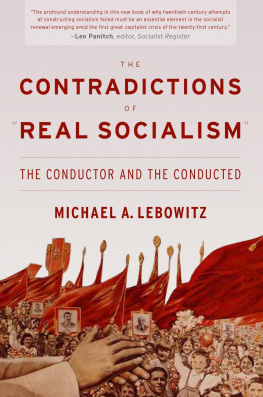Anthem Press
An imprint of Wimbledon Publishing Company
www.anthempress.com
This edition first published in UK and USA 2022
by ANTHEM PRESS
7576 Blackfriars Road, London SE1 8HA, UK
or PO Box 9779, London SW19 7ZG, UK
and
244 Madison Ave #116, New York, NY 10016, USA
Copyright Jos Maurcio Domingues 2022
The author asserts the moral right to be identified as the author of this work.
All rights reserved. Without limiting the rights under copyright reserved above, no part of this publication may be reproduced, stored or introduced into a retrieval system, or transmitted, in any form or by any means (electronic, mechanical, photocopying, recording or otherwise), without the prior written permission of both the copyright owner and the above publisher of this book.
British Library Cataloguing-in-Publication Data
A catalogue record for this book is available from the British Library.
Library of Congress Control Number: 2021951237
ISBN-13: 978-1-83998-077-0 (Pbk)
ISBN-10: 1-83998-077-X (Pbk)
Cover Image: Soviet red propaganda poster of the Cold War, raised in the air fist, sickle and the star of communism. THE USSR, by Andrew1998 / Shutterstock.com
This title is also available as an e-book.
The goal of this short book is to discuss what the purportedly socialist societies of the twentieth century were, and what is left of them at present. I approach these societies starting from a specific entry point, that is, I focus on the political dimension, which I elaborate on below, which allows for a broader characterization of the topic. I call the sort of social system discussed here authoritarian collectivism. It was based on the party-state structure and democratic centralism and was structured as a system of rule. Generally, it did not survive into the twenty-first century, though, in some cases, the specific political dimension and partly its state were retained with the transition to a variant of capitalism in which citizens rights remain secondary, thus reproducing the former framework. This was a strategy of adaptation implemented once the system evolutionarily proved too fragile to reform. The political system at its core found a new lease of life in combination with a sort of state-based capitalism, reminiscent of a prior phase of modernity state-organized with which the so-called real socialism had important affinities. It was then perhaps that this sort of social system more clearly revealed how distant it was from socialism proper, despite the use of the word socialism to define it.
The use of the political catchphrase real socialism (also really/actually existing socialism real existierender Sozialismus) in this book requires a brief explanation, though this is obviously a rather current expression. It was originally coined by Erich Honecker, the general secretary of the East German Socialist Unity Party (SED), in 1973. It paralleled Leonid Brezhnevs introduction of the idea of developed socialism, also in the 1970s (). Even though the expression has perhaps a less optimistic ring to it, Honecker coined it as a sort of praise for the society he saw his country as concretely embodying. Afterwards, it was applied in a critical way, rather diffusely, to conceptualize the social system of the Soviet Union and the countries that basically followed its model. That is, while the original coinage implied an actual definition of the concrete model of socialism that would have been built in these countries, others would use it to disqualify them as socialist, or point out how distorted the model was, mostly due to authoritarianism. I will at times refer to authoritarian collectivism as real socialism, using the term as a native category, without ever implying that these countries were socialist, irrespective of how deeply many people, within and without, as well as their rulers believed that they were building socialism and preparing the ground for communism. To be sure, the people, cadres and militants, rulers and ideologues, in each of these countries, starting with the Soviet Union and later in Eastern Europe and the Balkans, in Asia, Latin America and Africa, developed their societies according to specific historic circumstances and to some extent creatively, with all the positive and negative aspects of this attempt at superseding capitalism. Yet the pristine Soviet model, especially after it was stabilized and had shed Stalinist terror, was, in one way or another, reproduced, regardless of how state and regime were defined. It is the main traits of this model, along with the treatment of some national particularities, that form the focus of this book. This system was indeed postmodern, but did not configure a socialist society, as I shall argue throughout the book.
I must also comment on the relation between history and the analytical exposition I articulate in these pages. I have tried to flesh this relation out and account for some variation in the implementation of authoritarian collectivism as a system of rule in specific contexts. The model as such, exported afterwards, stems from the Soviet experience, especially from the 1930s onwards. How revolution and authoritarian collectivism were established did depend on concrete historical circumstances and political inventiveness to some extent, within the limits set by political ruling circles. However, the new society was to a large extent at variance with the basic model and mould that Marxism had imagined for socialism once the revolutionaries came to power and then built it, although they did follow some of Marx and Engels recommendations, as we shall see. If capitalism found its original paradigmatic instance in nineteenth-century England, collective authoritarianism had the Soviet Union as its chief reference. This underpins the framework that I try to articulate here as a theoretical exercise, without forgetting history and contingency. In my exposition, I will therefore work first on the principal analytical categories of authoritarian collectivism, moving then to its developmental dynamics. Finally, I will tackle its contemporary changes, including a glance at future possibilities.
An underlying concern of this book is the validity and possibility of socialism as a horizon of possibilities, which must to a large extent be unprecedented especially in view of its historical failure in the guise of real socialism or, as I prefer to name it, authoritarian collectivism. There has been a tense dialogue and sometimes fierce exchange between liberalism, not to speak of fascism, and socialism, including communism. Socialism and communism craved to leave modernity behind, replacing it with a truly emancipated society. How it turned out in practice is what I investigate here; for, to unlock the future, it is important to consider what happened to the project of an emancipated society which socialism or communism as well as anarchism strived to bring about, notwithstanding the present improbability of effective movements in what regards the construction of a socialist society.
I thank the National Research Council (CNPq) of the Brazilian Ministry of Science, Technology and Innovation, the Rio de Janeiro State Research Foundation (FAPERJ) and the Alexander von Humboldt Stiftung in Germany, from which I received the Anneliese Maier Research Award in 2018, for their support in researching for this book. I would also like to thank Leander Badura for his research assistance and Clay Johnson for his revision of the text, as well as Anthems anonymous reviewers and staff.













